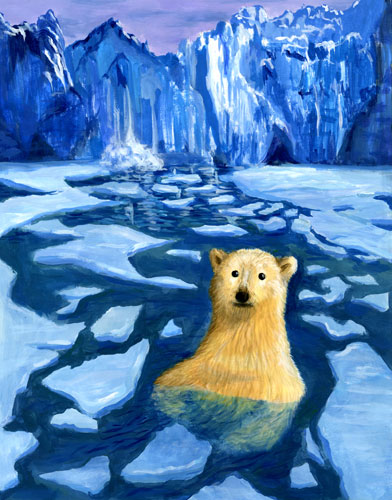 Sparkling sunshine and warming-up temperatures this Monday morning on California’s north coast — the NWS forecast for today is ‘Mostly Sunny,’ tomorrow, ‘Partly Sunny,’ at least keeping some bright alive.
Sparkling sunshine and warming-up temperatures this Monday morning on California’s north coast — the NWS forecast for today is ‘Mostly Sunny,’ tomorrow, ‘Partly Sunny,’ at least keeping some bright alive.
Buried beneath the ear-piercing, distracting white noise oozing from the infected bowels of the T-Rump, new research indicating our oceans are warming faster than anticipated — via the Guardian last Friday:
One main outcome of the study is that it shows we are warming about 13-percent faster than we previously thought. Not only that but the warming has accelerated. The warming rate from 1992 is almost twice as great as the warming rate from 1960. Moreover, it is only since about 1990 that the warming has penetrated to depths below about 700 meters.
(Illustration found here).
There’s so much shit pouring out of the DC outhouse no wonder the eyes are brown that are crying in the rain. And the vast majoritiy nothing more than corrupt distraction — and even a distraction to distract from the distraction, as per this morning: ‘President Donald Trump complained Monday morning that members of the media have treated officials from his administration rudely and advised the media that “you will do much better” if his officials are treated nicely.’
These people are lying about your lying, asshole.
So lost in the shirt waters are some major news, as having to do with our only environment — and further from the Guardian:
New research has convincingly quantified how much the Earth has warmed over the past 56 years.
Human activities utilize fossil fuels for many beneficial purposes but have an undesirable side effect of adding carbon dioxide to the atmosphere at ever-increasing rates.
That increase – of over 40-percent, with most since 1980 – traps heat in the Earth’s system, warming the entire planet.
But how fast is the Earth warming and how much will it warm in the future?
Those are the critical questions we need to answer if we are going to make smart decisions on how to handle this issue.
At any time the direct effect of this blanket is small, but the accumulated effects are huge and have consequences for our weather and climate.
Over 90-percent of the extra heat ends up in the ocean and hence perhaps the most important measurements of global warming are made in the oceans.
…
First, we corrected past data for known biases in measurements.
Second, we related the temperature measurements to results calculated from advanced climate computer models.
Third, we applied temperature knowledge to larger areas so that a single measurement was representative of a large space around the measurement site.
Finally, we used their knowledge of recent and well-observed temperatures to show that the method produced excellent results.
And an asshole in charge of the EPA…
Another ocean-related study also out, which shows the domino-effect of all that heat, with ‘serious knock-on effects for the ocean’s plants and animals’ — per Carbon Brief last week:
The study finds that with just 15 more years of current emissions, over half of the world’s ocean will be exposed to more than one source of stress, affecting everything from the tiniest plants to the mightiest whales.
By 2050, that figure rises to around 86-percent of the ocean, say the authors.
The paper, published today in the journal Nature Communications, finds that if all countries stick to their pledges to cut emissions, as part of the Paris Agreement, this would relieve the pressure by giving organisms an extra 20 years to adapt or migrate.
But for Arctic species, there may be no refuge from climate change, the paper warns, regardless of how quickly we act to cut emissions.
…
First, warmer water is more inclined to stratify into layers, restricting access to nutrients for plants living on the surface.
At the same time, excess CO2 absorbed by the ocean is making it more acidic, with consequences for marine life that build shells or skeletons.
Thirdly, warmer water reduces the amount of oxygen in the top layer of the ocean, the study explains.
Finally, all of these things affect the process by which marine plants produce food to live and grow, known as primary production.
Dr Stephanie Henson, a specialist in biogeochemical oceanography at the National Oceanography Centre in Southampton, who is the lead author on the paper, tells Carbon Brief:
“Primary production is the base of the food web so the ultimate food source for everything in the oceans. If that food source is declining, that will obviously put stress on the marine ecosystems as well.”
For emphasis, in regard to those poor-ass polar bears.
And there it goes…
Leaving oceans for a sec, a new study on climate change and dirt — from Fusion, also last week:
A new study published Thursday in the journal Science has determined that if organic carbon in deep layers of soil warms at a rate similar to surface layers it could result in a dramatic increase in carbon dioxide emissions by the end of the century, if not sooner.
According to research by scientists at the Department of Energy’s Lawrence Berkeley National Laboratory, deeper stores of carbon are more sensitive to warming than previously thought.
“Our calculations suggest that by 2100 the warming of deeper soil layers could cause a release of carbon to the atmosphere at a rate that is significantly higher than today, perhaps even as high as 30-percent of today’s human-caused annual carbon emissions depending on the assumptions on which the estimate is based,” said Caitlin Hicks Pries, a postdoctoral researcher in Berkeley Lab’s Climate and Ecosystem Sciences Division.
And remember to not use your microwave — Obama can eavesdrop…